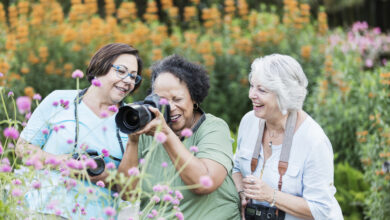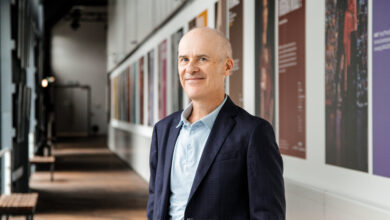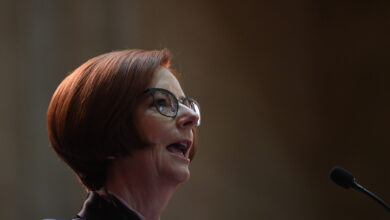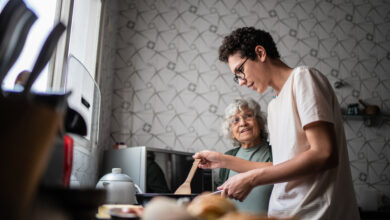South Australian provider recognised for its commitment to LGBT staff and residents

Over 30 years after homosexuality was decriminalised in South Australia, one of the state’s leading care services pledged to create a safer environment for LGBTIQ+ residents, families and staff.
Eldercare, a non profit organisation, introduced the ElderPRIDE project in 2017 and recently took home the social inclusion index prize at the 2021 Future of Ageing Awards.
The initiative has been recognised for promoting inclusivity and respect in the non-profit's work culture, policies and procedures.
“It has reinforced our values and that was the aim to start with, to be more welcoming and inclusive,” said Eldercare’s chief executive Jane Pickering.
“I think we’ve become much more person centred, and much better at doing individualised assessments and being flexible about what care we provide to individuals.”
More than 236,000 Australians live in permanent residential care, and an estimated 10 per cent of people aged over 65 identify as LGBTIQ+.
Studies have shown that LGBTIQ+ older adults are more reliant on longer term care due to being more likely to live alone, be socially isolated and have less family support.
Due to Australia's history of anti LGBTIQ+ laws and prejudice, many find it difficult to enter the aged care system.
“We know that people, particularly from the LGBTI community, find it really challenging when they go into care,” Pickering told Aged Care Insite.
“If you were gay in the 60s and 70s, it was illegal, and the repercussions were quite serious, so they are often in the closet, or their families might not know.”
The final report of the royal commission highlighted that many providers were ill-equipped to meet the unique needs of people belonging to diverse communities.
As the only aged care provider in South Australia with a rainbow tick accreditation, Eldercare has established itself as a home and employer of choice for many LGBTIQ+ people living in the state.
Pickering, who has worked in aged care for four decades, said she believes that the types of services provided to older LGBTIQ+ people has shifted immensely over the past decade.
“In my personal view or experience, if you were gay it was not a factor to consider, and it was sort of ignored as part of your care needs or social needs or wellbeing," she said.
“I think we’re learning a lot more about people from all walks of life, and we’ve got to be careful to not to lump everyone that’s LGBTIQ+ into the same grouping because everyone’s got different needs and requirements."
One of the first changes introduced by ElderPRIDE mandated online and group diversity training its over 1,200 staff members.
The training surveyed new workers on their own beliefs and perceptions of diverse communities and gave information about the health care needs of LGBTIQ+ adults.
“We’ve been able to support them with good information, bust some myths and make them feel more comfortable,” said Pickering.
“A lot of our multicultural workers that are very religious, or have quite different belief systems, we’ve also been able to work with them very well.
“Even if they don’t believe in it themselves, what we’ve managed to do is change their behaviour so that they are respectful and kind.”
In a 2016 survey, fifty per cent of Eldercare staff said that the organisation was safe and inclusive for LGBTI people.
After being asked the same question four years later, the number had risen to 90 per cent.
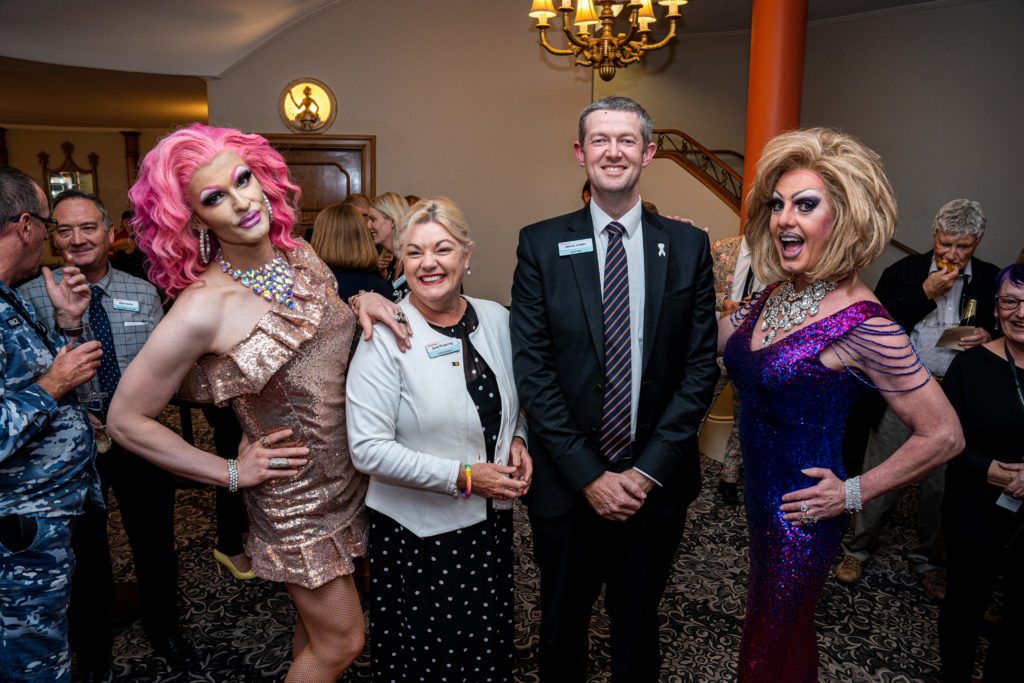
Daniel Fleming, one of Eldercare’s site operations managers, says that the ElderPRIDE initiative has made him feel more comfortable to be himself in his workplace.
“If you can’t be yourself at work, then you can’t be happy at work,” Daniel told Aged Care Insite.
“I’m not saying that means you have to be out, or tell everyone what’s going on in your life, but I think if you are trying to hide things from your personal life out of fear, you can’t possibly be bringing your whole self to work.
“We’re providing care, support services and emotional connection with residents, and if you’re not being your whole self, you can’t do that.”
Daniel, who is a member of Eldercare’s LGBTIQ+ advisory committee, has worked in the aged care space as a carer and registered nurse since 2008.
He said that the use of non inclusive language by staff has been one of the greatest barriers to helping LGBTIQ+ residents feel safe and included.
“The biggest thing for residents is that that they feel comfortable not having to come out constantly, or to disclose constantly,” said Daniel.
“It’s about us being aware so a resident doesn’t have to disclose 15 times a day.”
One of the most impactful outcomes from ElderPRIDE has been educating residents and staff with loved ones who identify as LGBTIQ+, according to Daniel.
“It’s been really great for them to have conversations about that and feel open that they can talk about the relationships that their children might have, they have, or their friends have," he said.
Theresa Prior, who has lived at ElderCare for two years, represents her fellow residents on the LGBTIQ+ advisory committee as a community ally.
Before entering care, a group of gay and lesbian friends and neighbours had helped her to sell her house and move into care after her best friend of over 25 years had passed away.
She said that joining the committee was a way of repaying the LGBTIQ+ community for helping her when she most needed it.
“I’m inclined to say yes to anything that comes along in life, and that attitude has brought me great blessings, and certainly this has been another blessing,” she told Aged Care Insite.
“We’re quite a tight-knit community; we sit, and we laugh about many things.
“They have managed to make me feel so welcome.”
Email: [email protected]

